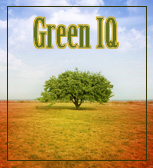Ask Ronit
 I Like Your Ponytail, A Story About Commitment
I Like Your Ponytail, A Story About Commitment
“I like your ponytail.” I said in a playful manner. “Ponytail?” he repeated in a thick French accent. There and then began the most extraordinary odyssey of my life.…
Avoid 90% of the Pesticides in Food, by Avoiding 12 Foods
Why should you care about pesticides in your food?For starters there may be as many as twenty pesticides on a single piece of fruit you eat.…
Dear Mrs. Black,It was January 1967 when this 11 year-old, frightened, little Israeli girl walked into your classroom for the first time. I had only arrived in the country two weeks before.…
With sex all around us, oozing out of our televisions, theaters, magazines, fashion, on the streets, one would think we are the most sexually informed, open and comfortable nation on the planet.”…
I’m sure by now you all have noticed the ongoing meltdown in the mortgage industry. The cause of this whole mess is a little bit complicated, rooted in both the structure of the mortgage industry, and human nature. I’ll try to explain both factors here in layman’s terms.…
Breaking old habits; Creating new Ones
We are mostly habitual beings. Webster defines habit as an acquired mode of behavior that has become nearly or completely involuntary.…
Navigation
Carbon Diet
- Carbon dioxide (CO2) is one of the major greenhouse gases responsible for altering the planet's climate by trapping heat from the sun. It is released into our atmosphere when carbon-containing fossil fuels are burned in air. Since the Industrial Revolution in the 1700’s, human activities such as the burning of oil, coal and gas, and deforestation, have increased CO2 concentrations by 35%.
- The typical westerner (resident of USA, England, Australia) produces 9,432 kg (20,750 lbs) per a year. With the rapid economic and technological growth currently underway in India and China, the rates are increasing dramatically.
- We need to act now.
- Get on our Carbon Diet and decrease the amount of CO2 weight you personally release into the atmosphere.
- Our “carbon scale” will measure your current CO2 weight, and gives you an opportunity to commit to certain actions which will help you lose the weight. It also provides some recipes to further reduce your weight.
- Please use our forums to discuss your thoughts, concerns, and progress, as well as, contribute any information or recipes that may help others.
- Like all other diets, in order for the Carbon Diet to be successful, it ultimately requires a permanent change in lifestyle. As we all know, this is no easy feat. Use our "breaking habits" to aid you in your efforts.
- Given what’s at stake, with the proper support, we will not only succeed, but are determined to have fun while doing so.

 My Hero
My Hero We Are Sexual Beings
We Are Sexual Beings The Banking Implosion
The Banking Implosion














Alternative agricultural systems that ecological and community resilience provide a bridge between traditional agriculture ( . broad scale monocropping rotations) and natural resource management ( . maintaining pristine environments). These can be referred to as ecological systems and include systems such as Organic Agriculture, , Community Supported Agriculture (CSA's), , Farmers Markets and Community Gardens. Government agencies, private industries (and to some extent Universities) primarily focus on traditional agricultural systems. Where sustainability and community health issues are considered, the usual emphasis is on how these traditional systems might be adapted or managed to reduce environmental or health impacts (within the current economic and production paradigm). Communities however, are taking the lead in developing ecological systems that address today's environmental and social justice imperatives. These approaches often require more systemic change, as well as a shift from an economic paradigm to an ecological one. For example, resiliency can be seen as a systems ability to adapt and respond to external impacts on a system, and farmers markets show resiliency to sudden market changes (such as price or consumer preferences toward organics, through direct sale and the involvement of a range of consumers and producers offering a broad range of organic produce). More specifically, this paper reviews these alternative approaches to agriculture in relation to key concepts from ecological systems thinking, such as ecological resilience, biodiversity and holism. In addition, the paper explores how these systems contribute to more sustainable and resilient communities, through community development processes such as relationship building, genuine participation, inclusiveness, resource mobilization and creating space for knowledge sharing. The paper concludes comparing ecological systems models to alternative agriecological systems, and suggests how ecological systems theories and concepts might contribute to thinking about the future of communitybased agroecological resilience. ugg boots sale http://www.tibetdolmacarpets.com/ugg.php
Find low fat food from different grocery stores at http://www.unmuteme.com
Post new comment